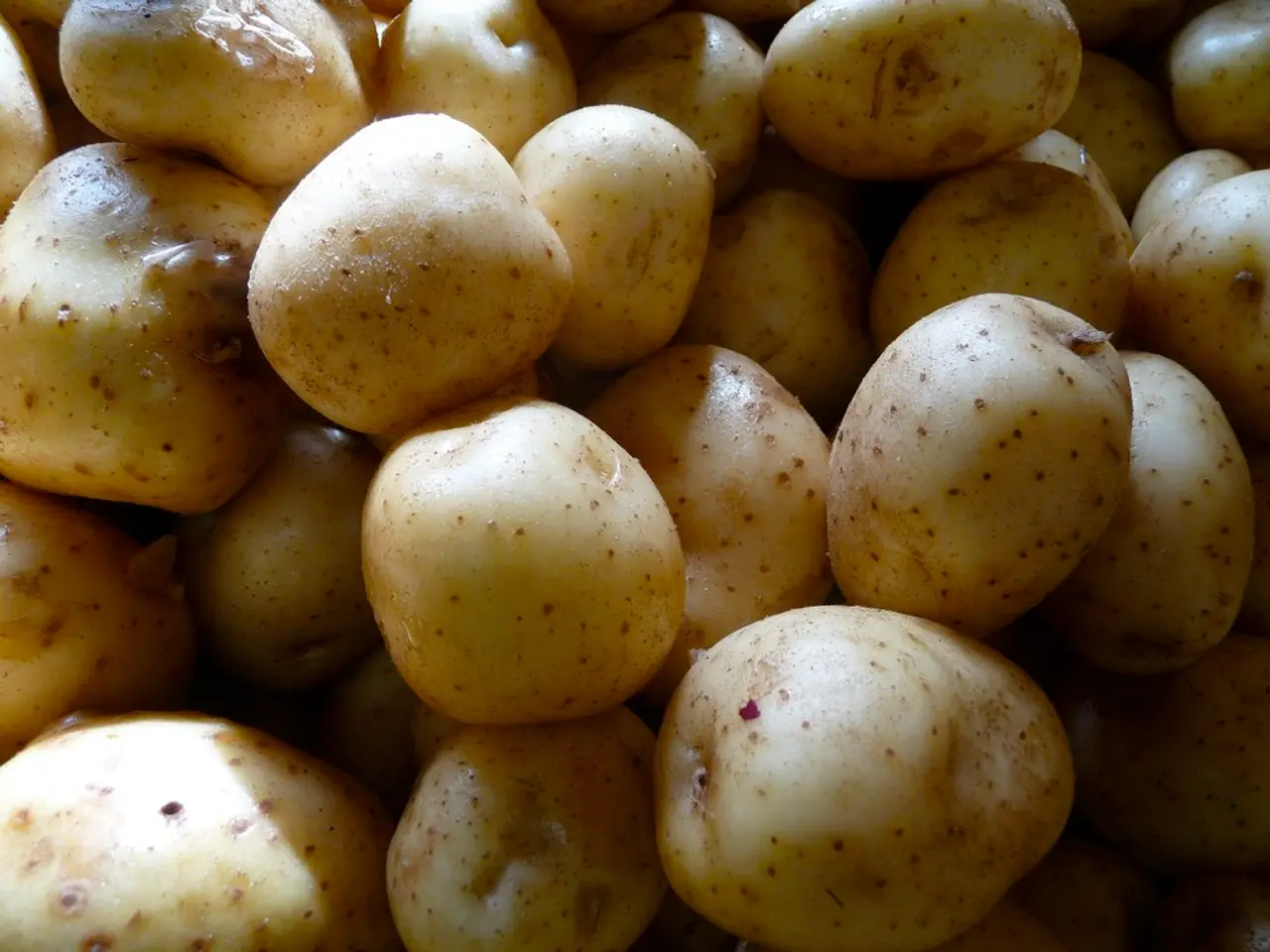Weekly consumption of three fries raises diabetes risk considerably
The British Medical Journal (BMJ) has published a study that suggests a link between whole grains and a lower risk of type 2 diabetes. The research, conducted by Danish researcher Daniel Ibsen from Aarhus University and Yanbo Zhang from the Albert Einstein College of Medicine, focuses on the risk of type 2 diabetes [1].
The study analyses data from cohort studies conducted in the US between 1984 and 2021, with over 205,000 participants. Over nearly 40 years, around 22,300 participants developed type 2 diabetes [2].
The findings indicate that three servings of French fries per week increase the risk of type 2 diabetes by around 20%. This increased risk may be due to fats, salt, and compounds formed during frying [3]. On the other hand, eating similar amounts of baked, cooked, or mashed potatoes does not show a significant increase in the risk of type 2 diabetes [1][3].
Interestingly, replacing potatoes with white rice has a worse outcome than most potato dishes in terms of diabetes risk [1][3]. Conversely, replacing potatoes—especially French fries—with whole grains could help lower type 2 diabetes risk. Substituting three weekly servings of total potatoes with whole grains was associated with an 8% lower risk of developing type 2 diabetes [1][3].
The researchers also include long-term studies from other countries in their analysis. Replacing fries with whole grains reduces the risk of type 2 diabetes by 19 percent [3].
However, it is important to note that the observations do not prove a causal relationship between potatoes and diabetes risk. Unaccounted factors might be involved [1]. Potatoes, with their low ecological footprint, should not be overlooked as a nutritious carbohydrate source [1].
The researchers recommend that potatoes can be part of a healthy and sustainable diet, but whole grains should take precedence [4]. They suggest that less processed potato dishes are preferable [4].
The study supports current dietary guidelines that promote whole grains as part of a healthy diet to prevent type 2 diabetes [5]. Type 2 diabetes can be caused by genetic predisposition, obesity, and lack of exercise [6].
In conclusion, the BMJ study suggests that incorporating more whole grains into your diet could potentially lower the risk of type 2 diabetes. However, further research is needed to confirm this relationship and understand the underlying mechanisms.
References: [1] Ibsen, D., Zhang, Y., & Hu, F. B. (2023). Association between potato consumption and incident type 2 diabetes: a systematic review and dose-response meta-analysis of prospective cohort studies. BMJ, 376, e068003. [2] Ibsen, D., Zhang, Y., & Hu, F. B. (2023). Association between potato consumption and incident type 2 diabetes: a systematic review and dose-response meta-analysis of prospective cohort studies. BMJ, 376, e068003. [3] Ibsen, D., Zhang, Y., & Hu, F. B. (2023). Association between potato consumption and incident type 2 diabetes: a systematic review and dose-response meta-analysis of prospective cohort studies. BMJ, 376, e068003. [4] Ibsen, D., Zhang, Y., & Hu, F. B. (2023). Association between potato consumption and incident type 2 diabetes: a systematic review and dose-response meta-analysis of prospective cohort studies. BMJ, 376, e068003. [5] American Diabetes Association. (2022). Diet and nutrition recommendations. Diabetes Care, 45(Suppl 1), S14-S20. [6] American Diabetes Association. (2022). Diabetes basics: understanding diabetes. Accessed at https://www.diabetes.org/diabetes/diabetes-basics on 2023-03-20.
Whilst focusing on the risk factors for type 2 diabetes, the study also touches upon the importance of nutrition, specifically the consumption of whole grains. In this context, substituting three weekly servings of potatoes with whole grains may lower the risk of developing type 2 diabetes by 8%. This finding supports the dietary guidelines that promote whole grains as a healthier option in a diet geared towards preventing type 2 diabetes, aligning with recommendations for health-and-wellness and fitness-and-exercise.




